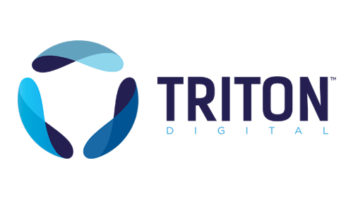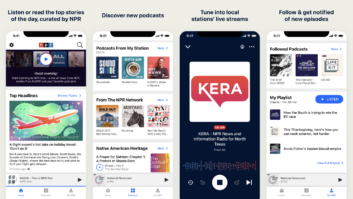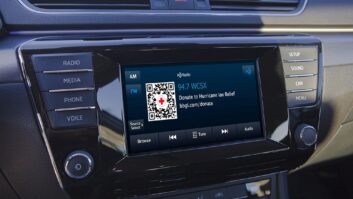
credit: Eric Lee, NPR
WASHINGTON — National Public Radio believes that growing relationships with tech companies like Google and Apple is key to its future digital success. At NPR, Joel Sucherman is point man for those budding partnerships.
Sucherman, vice president of new platform partnerships, is responsible for increasing the reach of NPR on emerging platforms while focusing on voice-activated devices. Promoted to the position in April by Chief Digital Officer Thomas Hjelm, Sucherman leads the media company’s efforts to develop strategic partnerships with Apple, Google, Amazon, Samsung, Microsoft and other technology partners.
The rising popularity of personal assistants like Amazon Echo and Google Home is fueling the new audio renaissance and makes Sucherman’s work critical, according to the organization.
Sucherman, 54, came to NPR after having founded the first streaming video group at USA Today; his radio roots date to his time as a Capitol Hill correspondent in Washington. Over the past 10 years he has helped shape NPR’s digital strategy, including working with and guiding the team responsible for a digital portfolio that includes NPR.org, the NPR and NPR One apps, and products delivering live and on-demand audio to the connected car and home, the company said.
[Voice-Controlled Wait Wait Quiz “Checked All the Boxes” for NPR]
NPR has put a lot of resources into the development of multiple digital platforms that stretch the network’s digital fluency. The public broadcaster’s efforts include a Public Radio Incubation Lab, consisting of product managers, designers and technologists who work four-month rotations solving public radio’s pressing digital challenges, according to a press release.
Sucherman, who regularly travels to Silicon Valley and Seattle to meet with technology companies, said a recent survey by NPR and Edison Research pegged the voice-activated smart-speaker market at 53 million people in the United States.
Radio World spoke with Sucherman about his vision of audio distribution and the challenges emerging technologies present to traditional radio broadcasters.
Radio World: Give us a summary of what you have worked on and your immediate focus these days.
Joel Sucherman: I came on board to work with member stations on improving digital acumen and reaching audiences in the digital space. First, it was building out a blog network of local blogs that were of critical importance. Then, I took over the product team, which manages NPR apps, the website, podcasts and social media. Then, it became clear that emerging platforms and, more specifically smart speakers, would become my primary focus.
Today, I manage relationships with the big tech companies to ensure we are where we want to be, so that listeners can find public radio no matter how they choose to tune in.
RW: You are heavily involved with NPR’s growing presence on voice-activated platforms such as Amazon Alexa, Google Assistant, Apple’s Siri, Samsung’s Bixby and Microsoft Cortana. What makes voice-activated services so critical?
Sucherman: Within just four years of their introduction, 53 million Americans now have a smart speaker in their home. These are what I call beautiful radios, and they are now in kitchens, living rooms, bedrooms and garages. Our research shows that more than half of Americans that have a smart speaker have more than one. It’s really phenomenal growth. Almost a third of folks that have them have three or more.
You always have to eye with some caution when someone else owns the platform, so to speak; then you are beholden to them. But so much radio listening is happening on these devices now that we see it as a huge opportunity for us. Right now, there is a great synergy between these platforms and public radio.
RW: When you talk about forming these partnerships, what do they typically look like?
Sucherman: Well, there is an exchange of value. I can’t really get into specifics of our arrangements and agreements. It’s not one-sided. We know full well the value of public radio and how many people are listening on various platforms. We know that right now we have over 2 million hours of listening to NPR programming per week on smart speakers. In fact, about 21% of all listening to public radio digital streams comes through smart speakers.
Companies like Amazon, Google and Apple are well aware of the power of NPR to drive those listening levels. They are happy to have us help people find value in these devices. This is kind of interesting. What we see time and time again is these companies take older technology and put it in or on new technology. We think it helps put more of a shine on our products.
Radio needs to make sure its content is available and easy to find on these appliances. Now we have started to experiment some with interactivity. Asking: How do we make the product more conversational? How do we begin to answer questions in that conversational tone?
We have 50 years of archives to dive into. That’s a lot of content.
RW: And you envision adding an “ask NPR” element to your offerings?
Sucherman: Yes. So for example, take the day Tom Petty passed away. We maybe had a 30-second story about his death in the newscast. Then, say, maybe there was a seven-minute segment from “Morning Edition.” Then somewhere, perhaps “Fresh Air” interviewed him in a longer 40-minute segment. So the challenge is to move people along from one place to the next and getting deeper into NPR content. But what are the magic words to get all of that accomplished?
Those are the sort of things we are working through. The goal is to get listeners to engage deeply.
RW: Take me inside NPR and how decisions are made about digital initiatives. What is the business planning process?
Sucherman: Producing great content is the recipe for success on all of our digital platforms. The business model of National Public Radio is to be sustainable in the digital world. Overall we won’t have to completely reconfigure our business model if we continue to produce great content.
[NPR’s Mohn Announces Plans to Step Down]
RW: Seems like the immersion of NPR’s digital brands know no limits.
Sucherman: Oh, yes. We are talking about connected TVs and connected homes. We even have NPR updates in Samsung smart refrigerators. It’s all about being able to meet listeners however they choose to tune in. We are even interested in the shared economy of Uber and Lyft and the opportunities there.
The podcast group here still rolls up to me on the product side. There is so much crossover between app platforms, podcast platforms and emerging platforms that it makes sense to do it that way.
Podcasting continues to grow for us. We now have better measurement of podcasting efforts with our new podcast measurement system called RAD [Remote Audio Data], which is being deployed. It shares listening metrics from podcast apps straight back to publishers. NPR One’s Android app is configured to read RAD tags now, and iOS will do the same.
In-car is, of course, a major focus. All of this digital fluency is really a collaborative effort between the digital media group here, programming and the news division along with sponsorship.
RW: You work closely with the likes of Google and Apple. Those companies want to control the audio experience of users. How do you view those relationships?
Sucherman: There are a lot of ways to look at it and turn that question around. Here is an example of how we view it. About eight years ago, we began to focus on the connected car and how that would impact how people listen to “Morning Edition” and “All Things Considered.” It became important that we focused on how things would look on what has become more like a tablet or a computer screen. Of course, each automaker had their own screen and vision of what things would look like.
So as it came to a duopoly, as it has today with Android Auto and Apple Carplay, we welcomed that consolidation. As an app developer and publisher it makes things so much easier to consolidate around just a couple of standards.

credit: Wanyu Zhang, NPR
RW: With so much focus on voice assistants, has app development taken a backseat at NPR?
Sucherman: Good question. The NPR and NPR One apps are well established. With NPR One, we are beginning to personalize offerings and have it understand your listening habits, much like Pandora does on the music side. Maybe in the morning you want hard news, but then for the afternoon drive home you are interested in podcasts.
The number of NPR podcasts has increased significantly along with updates via Twitter.
[At this point in the interview, Sucherman’s office smart speaker engages with Alexa, interrupting the conversation for a moment, which leads to laughter.]
Oh, sorry about that! Since we try to look at what the world might look like five or 10 years from now, we are trying to balance a lot of platforms. We try to think as much as possible about creating content that is flexible to fit whatever the platform might be.
[Community Broadcaster: Radio’s Smart Audio Moment]
RW: Any worries that autonomous vehicles will bring a more hostile environment for audio houses that produce content?
Sucherman: The focus on our in-car offering continues to expand. As a traditional radio company, we have to consider what autonomous vehicles might bring to that space. I will say that in one sense, motion sickness might be our friend [chuckles], in that not everyone will want to watch video in a moving vehicle.
Autonomous is an on-going development and will be for years. It’s very early. Public radio has been able to weather a number of challenges through the years with a focus on meeting the needs of listeners.
RW: What other trends are you focused on that might happen in the next five to ten years?
Sucherman: So as we think about voice assistants and smart speakers, we begin to think about a voice-first world. Voice-activated assistants such as Alexa, Assistant, Siri, Cortana and Bixby are going to be with us everywhere. Google and Amazon are talking about voice assistants that are with you all the time. On your phone, in your car and in your home. So all of your queries will become voice queries, no matter where you are. Making voice queries is so much quicker than typing things out.
We also think screen environments will still be very important in the voice space. Both Amazon and Google have spent a lot of time thinking about the screen and visual companion content. We hope to be part of those solutions to provide knowledge, entertainment and information.
RW: What is the next great partnership for NPR as you seek to engage with other emerging technologies?
Sucherman: Our digital portfolio continues to expand. Things are moving so quickly, especially in the voice assistant space. We are growing. We already have one scrum team in place devoted to emerging platforms like voice assistants and will soon be spinning up a second soon. A team is generally made up of a product manager, voice experience designer, two software engineers, a quality assurance specialist and a “scrum master” or project manager.
It’s a matter of trying to realize our ambitions in the space as they exist today.
And while Amazon and Google have certainly dominated the voice assistant space in this country to this point, Apple was really first out there with Siri, so I expect them to fight back and make more inroads. They launched a Homepod last year, and while it is a high-end speaker so it isn’t competing with the Mini or the Dot, I expect them to be a player yet.
I see the way we think about voice assistants today changing. Right now, it is more of a fetch mentality. “I want this, so you are going to get it for me.” It will become much more conversational in ways that is an always on experience. It will provide more nuanced meaning and better overall experiences for you.
The last thing I’ll say is I believe privacy and security will become even a greater concern to people. Certainly, people have the right to feel safe and that they are bringing these devices into their home that the devices are good houseguests.












